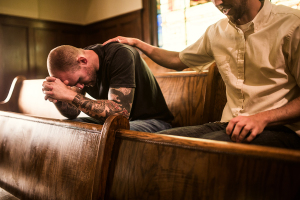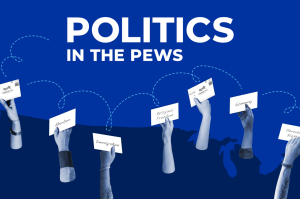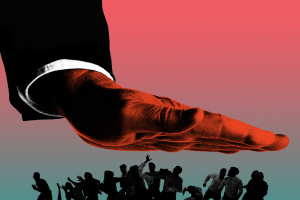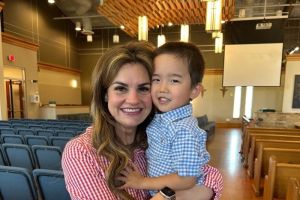The civic virtue of gratefulness
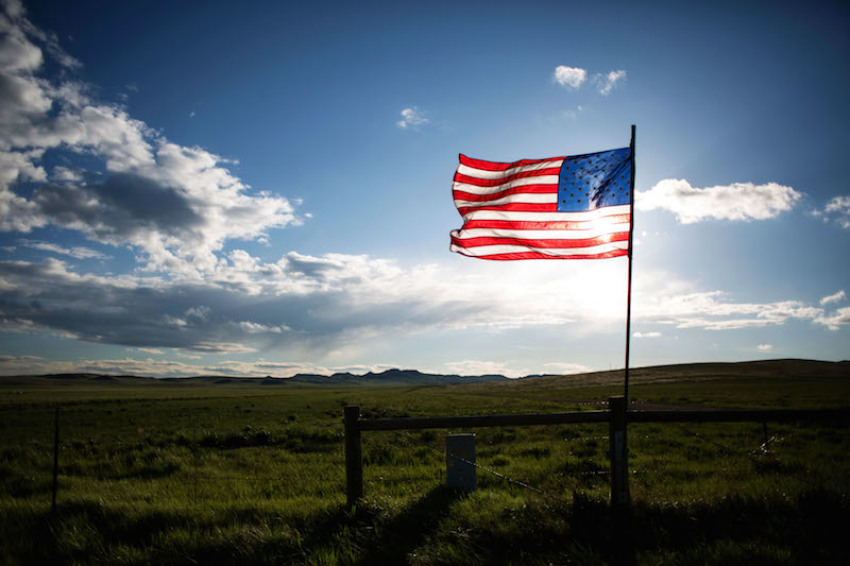
If you could be king of America for just one day, what would be the first thing you’d do to fix the country? When asked that very question, the great columnist George Will gave a surprising response. Paraphrased, he said, “I’d make every college student change their major to History and their minor to Contingency Studies.”
His point is an important one, and it’s as important as we are apt to forget it: America did not have to turn out the way it did. The Republic we inhabit is the result of bravery and revolutionary ideas, to be sure, but it’s also the result of an often-under-appreciated element; namely, chance.
Jonah Goldberg makes a similar point in his book Suicide of the West. Indeed, he takes the observation a step further. Not only is the freedom we enjoy a historical anomaly, it’s unnatural: “Capitalism is unnatural. Democracy is unnatural. Human rights are unnatural. God didn’t give us these things, or anything else. We stumbled into modernity accidentally, not by any divine plan.”
Now those of us who believe in Providence may rightly pushback against some of his “lucky” assumptions, but let’s not miss his very good and very true point. Our dearly held tenets of tolerance and mutual respect are unique conceptions of our idiosyncratic age.
For most of mankind’s history, Goldberg notes, we’ve lived a tribal, violent existence. Anyone who wasn’t “us” was inevitably “them,” and was to be hated and fought accordingly. That we now view the proverbial “other” with even a semblance of equality is a feat of monumental proportions.
Because the peace we have with one another today is painfully incomplete and imperfect, it’s easy to view the current state of affairs with contempt, as though everyone got on just swimmingly before our moment arrived. In reality, what we’re seeing isn’t the intrusion of novel social ills into humanity’s normal utopian bliss; it’s the return of the Tribe, the resurrection of an self-identified “us” that most definitely doesn’t include any of “them.”
In the age of identity politics, where a person’s trustworthiness and morality are inexorably linked with group affiliation, a practice enacted with equal vigor by both Left and Right, Goldberg sees the natural human propensity toward tribalism “coming back with a pitchfork.” He couldn’t be more right.
We’re renovating the Republic with the sledgehammer of populism, knocking down not only statues, but institutions and norms at will, unmindful of which artifacts are structural and which are superficial, which are negotiable and which are load-bearing. The structural integrity of the West has been compromised, perhaps irreparably, by those seeking to improve it.
As always, Malcolm Muggeridge was prescient:
“Thus did Western Man decide to abolish himself, creating his own boredom out of his own affluence, his own vulnerability out of his own strength, his own impotence out of his own erotomania, himself blowing the trumpet that brought the walls of his own city tumbling down.”
No, the current system isn’t perfect, not by a longshot. But it’s better than an infinite number of alternatives that were par for the course a relatively short time ago. We aren’t wrong to see the bad that exists in our present society, nor are we at fault for seeking earnestly for a better one. But before we toss out the old in favor of whatever new may come, let’s remember that not all change is for the better, and the as yet unseen failings of our idealized new world may not measure up to the hard-won principles of our present day.
By way of illustration, Goldberg recounts two versions of Aesop’s “golden goose.” In the first version, the goose is killed out of rage because he wouldn’t — or couldn’t — lay more eggs for his owner. In the second, he’s killed by the owner so as to remove whatever mechanism is inside him that creates the gold. On a surface reading, the first telling blames passion while the second blames reason. The real culprit, however, is ingratitude — which can as easily corrupt the head as the heart.
The goose-killers weren’t grateful for the miracle of a golden egg laying goose. If they’d been paying attention and had better perspective, they would have noted how unlikely such an event is! It’s simply not natural for a goose to lay golden eggs, and it’s simply not natural for human beings to live in the sort of free, prosperous, peaceful society where we find ourselves.
No, we must not stagnate in the status quo, but neither must we take for granted the value of our ordered liberty. Yes, we need to protest injustice, and no, we must not grow complacent with regards to the myriad social evils that plague our land. Yet, we must not let our idealism keep us form an honest realism: There has never been a better time to be alive — we’ve won the historical lottery, we should be grateful.
If the West is to be saved, she’ll need to find a Savior. She’ll need to recognize that what she has is not hers by right but only what has been given as a gift, and that this is a gift not every one of her sister cultures has received in equal measure. By ignoring the uniqueness of our blessings, we blind ourselves to the goodness of the gift, and, what is more, of the One who gave that gift.
This is why — as much as I love history and take George Will’s point about contingency — I would prioritize theology in any effort to make our country better. You see, our liberal democracy is dependent upon a virtuous citizenry, a virtuous citizenry is depended upon gratitude, and gratitude is dependent upon one to receive our thanks, a Giver of all gifts, a King above all kings.
Originally published at BreakPoint
Dustin Messer teaches theology at Legacy Christian Academy in Frisco, TX and ministers to young adults at All Saints Dallas. He’s the author of the forthcoming book, Be Ye Kind: Convictional Civility in a Combative Culture.















